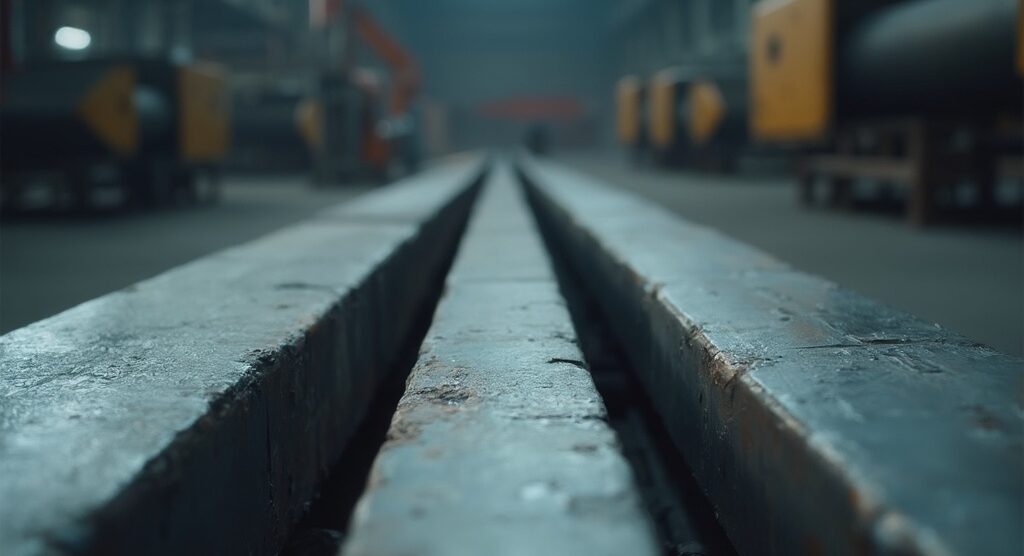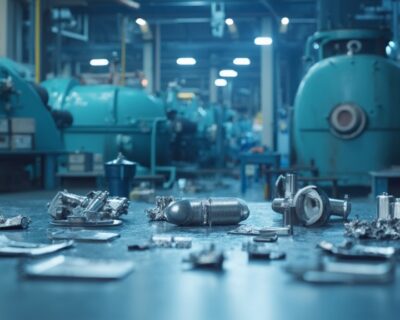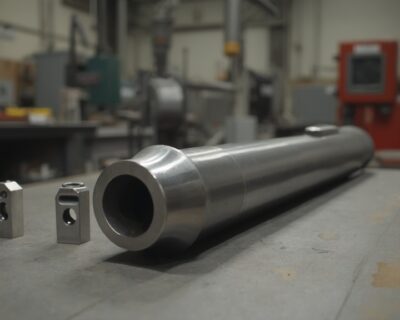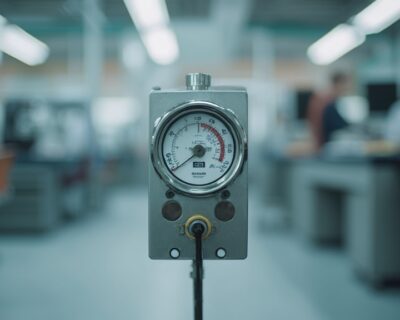Blogs

Comparative Analysis: How Strong is Titanium Metal Compared to Steel?
Introduction to Titanium Metal and Steel
In the world of industrial materials, titanium and steel are two heavyweights. Each metal offers unique strengths that make it valuable across a variety of industries. Understanding how they differ is crucial for procurement managers and engineering teams aiming to balance performance, cost, and specific application needs.
Titanium is prized for its light weight, high strength, and exceptional resistance to corrosion, making it ideal for demanding industries like aerospace, marine, medical, and automotive.
Steel, on the other hand, is cost-effective, widely available, and known for its high tensile strength, making it a go-to material in construction, infrastructure, and manufacturing.
This article explores the mechanical properties, strength-to-weight ratio, corrosion resistance, biocompatibility, and cost factors of titanium and steel to help you make informed material decisions.
Key Differences Between Titanium Metal and Steel
While both metals are indispensable in modern manufacturing, they offer distinct advantages:
- Titanium: Known for its excellent strength-to-weight ratio and corrosion resistance, especially useful in aerospace, medical, and marine environments. High-strength titanium forgings are especially valued for their ability to remain strong and durable even under extreme conditions.
- Steel: Valued for its affordability and strength, steel is widely used in construction, heavy machinery, and automotive industries. Stainless steel, in particular, is gaining popularity in sectors like renewable energy and infrastructure development.
Despite titanium’s higher manufacturing costs, its performance advantages and growing demand in high-tech sectors make it a strategic material for advanced applications.
Mechanical Properties of Titanium Metal vs Steel
- Titanium boasts remarkable tensile strength, maintaining its structural integrity even at high temperatures. This makes it ideal for aircraft engines, medical implants, and automotive components.
- Steel, especially carbon steel, is harder and tougher, offering excellent impact resistance. This makes it more suitable for construction, tools, and heavy equipment.
Forged components made from both metals undergo strict manufacturing processes, ensuring they deliver reliable performance in critical environments such as telecommunications, defense, and transportation.
Titanium Metal Strength-to-Weight Ratio
Titanium clearly outperforms steel in this area:
- Titanium has a 60% higher strength-to-weight ratio compared to steel. This means it can support more weight without adding bulk, which is critical in sectors like aerospace and automotive.
- For example, titanium alloys are widely used in airframes and engine components because they are strong, lightweight, and resistant to corrosion and heat.
- Steel’s higher density gives it a lower strength-to-weight ratio, making it less suitable for weight-sensitive applications.
Despite supply chain disruptions—such as the Ukraine conflict affecting global titanium availability—the aerospace industry continues to rely heavily on titanium for its unmatched properties.
Corrosion Resistance and Biocompatibility of Titanium Metal
One of titanium’s standout advantages is its natural resistance to corrosion, even in harsh environments like saltwater and acidic conditions. This also makes it biocompatible—ideal for medical implants and devices.
In contrast:
- Steel, while strong, needs coatings or alloying to resist rust, especially in humid or corrosive environments.
- Titanium alloys, like Ti-2.5Al-2.6Zr, have shown exceptional durability under extreme conditions, reaffirming their value in critical, long-term applications.
Applications of Titanium Metal vs Steel
- Titanium is a top choice for aerospace, military, medical, and performance automotive uses. It’s especially preferred where light weight and durability are essential. Titanium forgings are often used in components that demand high performance and precision.
- Steel remains the backbone of construction, manufacturing, and automotive industries. Its strength, availability, and low cost make it ideal for structural frameworks, machinery, and infrastructure.
Ultimately, your material choice should reflect the specific performance needs of your project. Titanium may offer superior properties, but steel often wins when budget and availability are key concerns.
Cost and Production Factors for Titanium Metal
Cost is a major factor in material selection:
- Titanium is more expensive due to complex extraction and processing. This can be a barrier for budget-conscious projects.
- Steel is cheaper, more abundant, and easier to produce—making it the standard in mass-market industries.
However, titanium’s long-term value can outweigh its upfront cost:
- A 2023 survey by Sapio Research found that 92% of plant maintenance leaders saw reduced downtime with more reliable materials, with 38% reporting at least a 25% improvement.
- 75% also noted that reliability improved financial performance and business reputation—factors that favor investment in premium materials like titanium.
Additionally, as industries move toward greener practices, durable materials like titanium help reduce maintenance, waste, and carbon emissions over time.
Conclusion: Choosing Between Titanium Metal and Steel
Titanium and steel are both foundational to modern engineering, but they serve very different purposes:
- Titanium is the material of choice for high-performance sectors due to its lightness, strength, corrosion resistance, and biocompatibility. It excels in aerospace, medical, and precision engineering applications.
- Steel, with its economic advantages and toughness, dominates in construction, heavy manufacturing, and infrastructure.
When choosing between these materials, consider:
- Your application requirements
- The environmental conditions
- Your budget
- The long-term value of reduced maintenance and increased reliability
Ready to boost your project’s performance and reliability?
Explore DOMADIA’s full range of high-performance titanium products tailored for your industry.
👉 Contact us today for a customized consultation and material recommendation.
#TitaniumVsSteel #MaterialSelection #EngineeringMaterials #IndustrialDesign #AdvancedMaterials #ManufacturingSolutions #EngineeringExcellence




